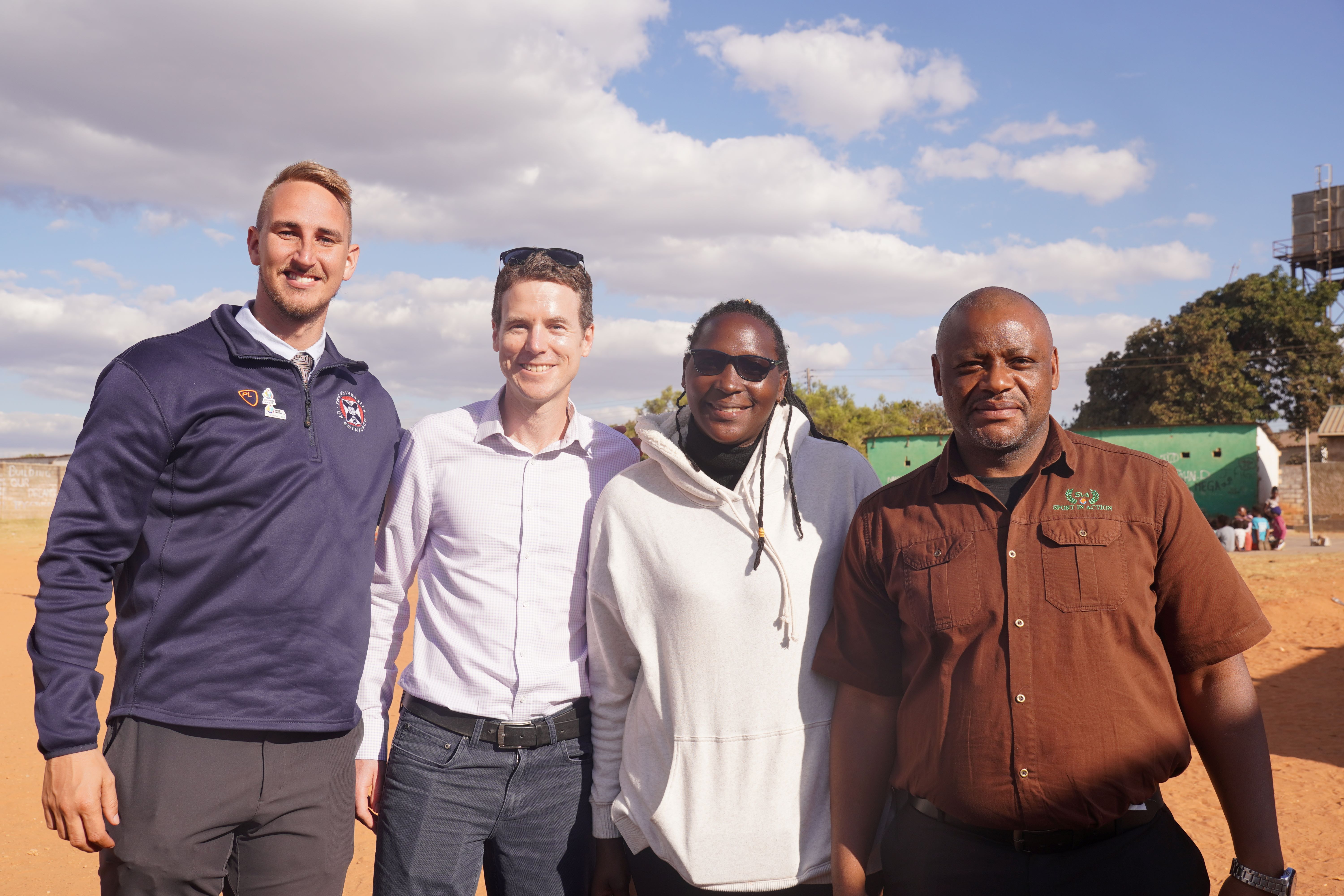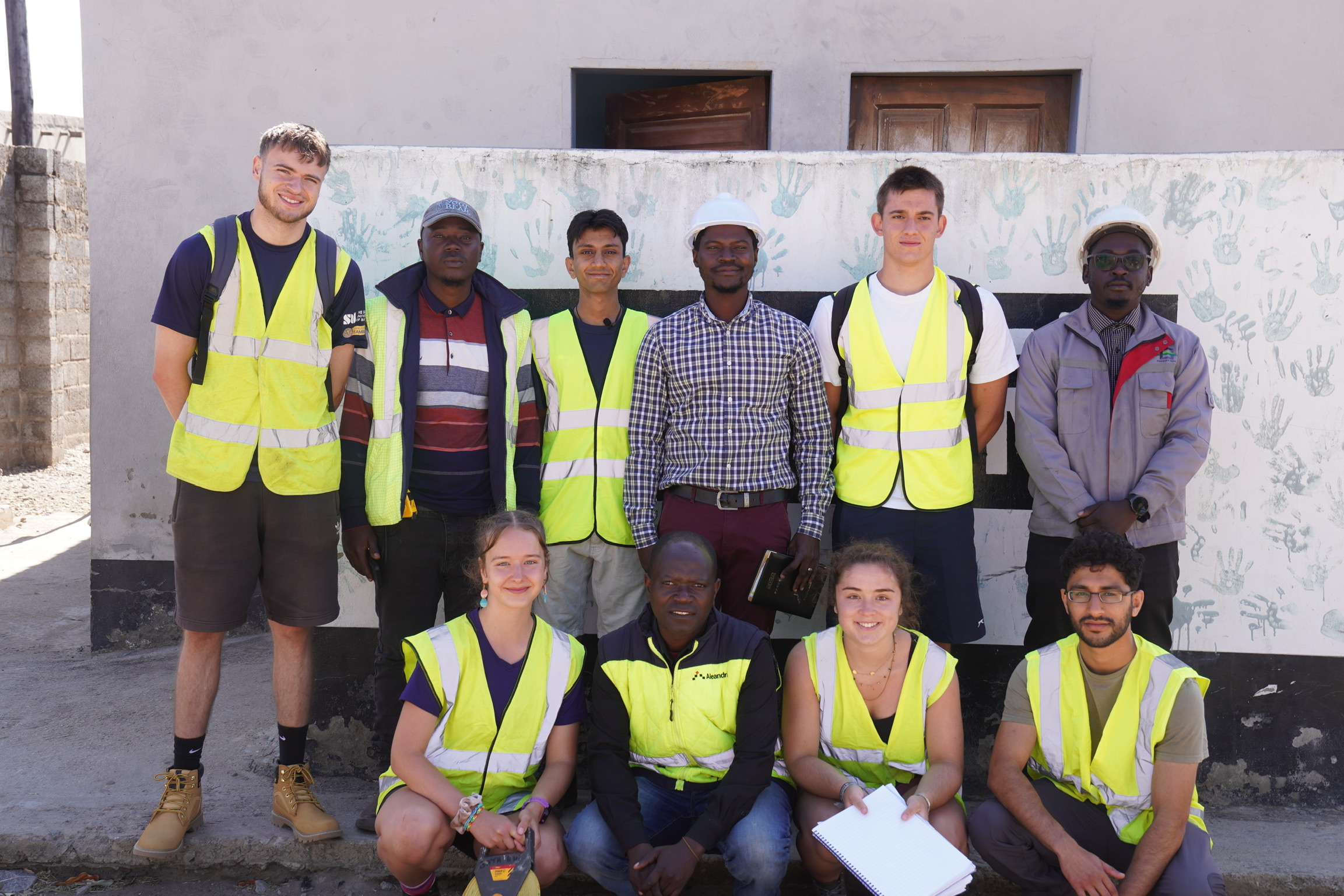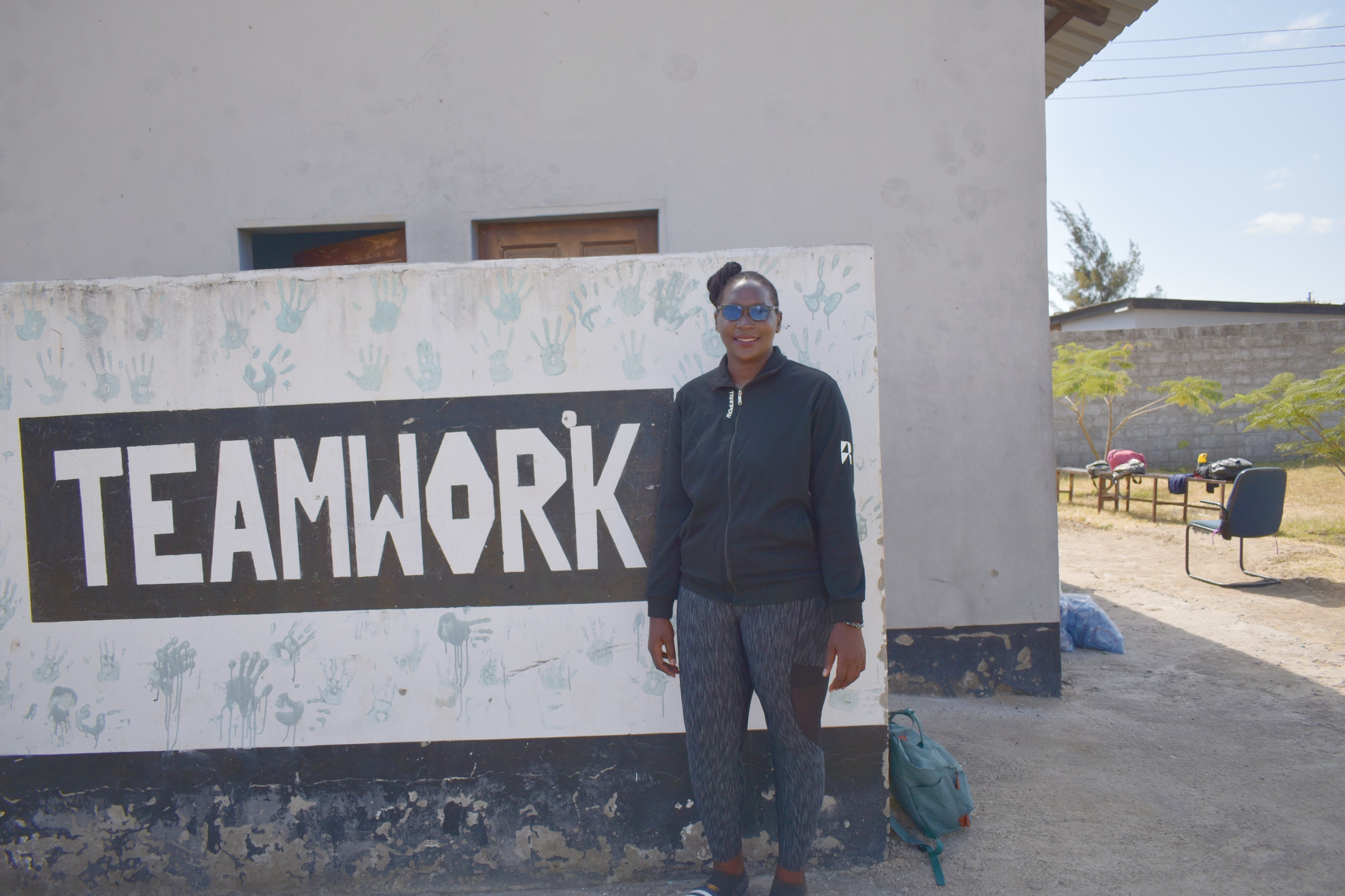On Thursday 10th August 2023, the British High Commissioner to Zambia, Mr. Nicholas Woolley visited…
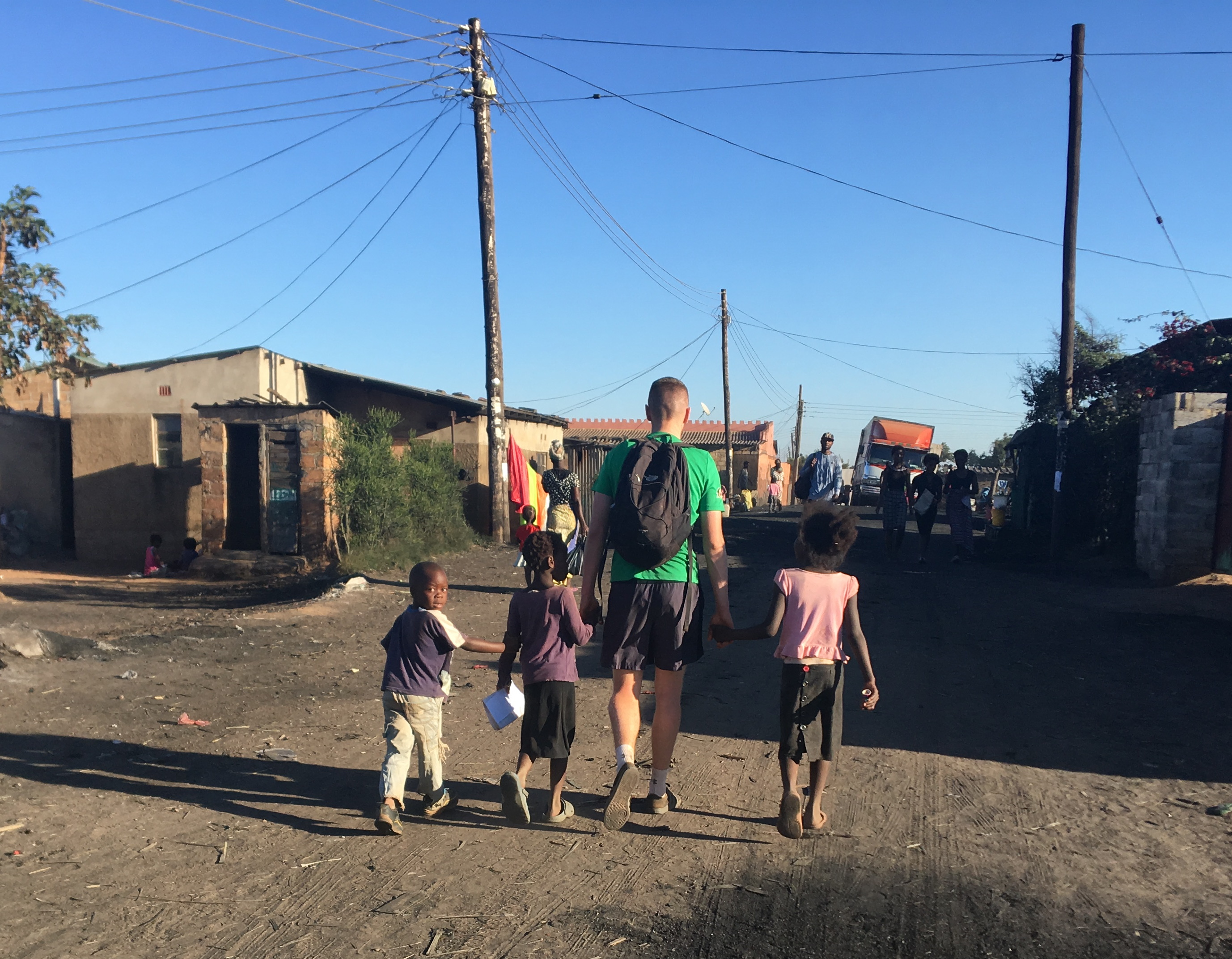
Football at Chipata
“Okay boys, take a couple of minutes to get some water and we’ll go again!” Some jog up to the water taps at the school – most stay and ping passes to each other along the dusty ground or take shots at one of the small goals. It is 3pm in Chipata, and the sport is in full flow. Emmanuel is busy in ‘his office’ coaching basketball in the furthest corner of the yard, Erin is umpiring a netball game for one of the hub schools on the netball court near the school buildings, and I am somewhere in the middle on a dusty patch of ground between coaching football to the u12 and u15 boys. The ground couldn’t really be classed as a football pitch – it is covered in small stones, and there is a sporadic dip or grassy mound here and there. It’s my daily routine to remove as many stones as I can before the sessions start, not that this is really noticed by the team; they skip across the stones in bare feet as though they’re on a premier league pitch.
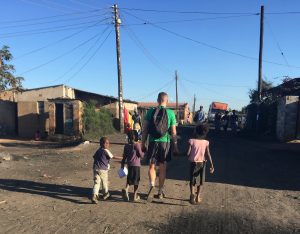
The boys soon start to congregate around me, eager to get going again with the football. The drill they are doing is possession based – there are two teams, and each team must make successive passes in their own ‘zone’ whilst two alternating people from the other zone run in and try to regain possession. It is fast paced, physical and exhausting, but these boys are made of tough stuff and hard graft is routine for them. Stray passes can happen a lot, though I try to keep the pace of the game going by throwing in another ball as quickly as possible. One of the smaller children spectating will then grab the stray ball and rush to give it to me to throw back in – an efficient system really.
Suddenly, a gust of wind whips up a wall of dust that engulfs myself and the lads – I shield my eyes, but the lads continue to play as if nothing has happened! It’s this dusty environment that means I return home to the house every day a particular shade of orange, known as a ‘Chipata tan’.
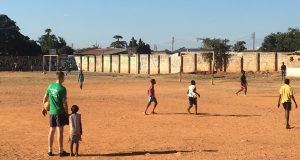
This is not the only unique aspect to coaching at Chipata. For one, I feel that it is the placement with the greatest sense of community. Children (attending the school or not) seem to come and go as they please, all keen to be involved in the sports, singing or whatever else is going on. There are always young spectators for my sessions! Every child you pass as you walk to the school from the bus will either say hello, reach out for a high five, or simply greet you with a beaming smile – I’ll never forget the ecstatic shouts of ‘muzungu’ from toddlers who are barely able to walk. All of the teachers have been so friendly too, even despite our inadequacies in learning Nyanja!
Chipata days can be long. A two hour journey each way, both times passing through the perilous bus station always means that Erin and I are always the last ones home and often exhausted through the evening. Working with the peer leaders has also been challenging, but I do feel that we’ve made some great progress in the time that we’ve been here. Despite these things, we both know that we wouldn’t swap our placement for any of the others – we feel like we belong here.
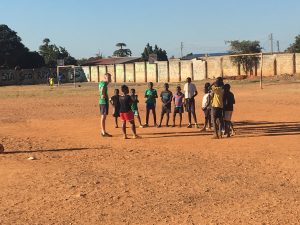
At four o’clock I reluctantly wrap up the session and take in all the equipment from the lads. They’ll continue to train for an hour or so but I need to make it home before darkness sets in at six. Luckily, I’ll be back again tomorrow amongst the dust and the chaos to run my next session.

